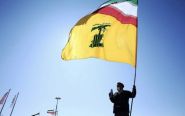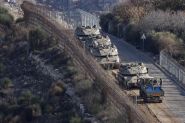
The United States’ involvement in Lebanese politics has intensified, particularly in efforts to counteract Hezbollah's influence. Recent events suggest that the US is attempting to influence Lebanon's presidential election, backing candidates like General Joseph Aoun to potentially weaken Hezbollah's grip. This involvement underscores the US’s interest in promoting a political environment in Lebanon that is more aligned with Western policies.
Currently, Lebanon faces economic collapse, political paralysis and ongoing security threats. Aligning more closely with the US could offer Lebanon avenues for economic assistance, security cooperation and support for governance reforms. The US has consistently advocated for Lebanon’s sovereignty, independence and stability, opposing external influences that undermine these principles.
American foreign policy has historically been characterized by a blend of strategic interests, ideological commitments and pragmatic engagements. In the Middle East, and specifically in Lebanon, this policy has evolved through various phases, reflecting the shifting dynamics of regional politics and global strategies.
Thus, US policy toward Lebanon has oscillated between active engagement and periods of relative disengagement. Washington established its first diplomatic presence in Beirut in 1833 with the appointment of a consular agent. Formal relations were solidified in 1944 when US diplomat George Wadsworth presented his credentials as Envoy. During Lebanon’s struggle for independence from French colonial rule in the 1940s, American diplomats worked behind the scenes to support Lebanese self-determination.
In 1958, amid internal strife and external pressures, President Camille Chamoun invoked the Eisenhower Doctrine, leading to US military intervention aimed at stabilizing the country. The US deployed 14,000 Marines and paratroopers to Lebanon to prevent a potential shift toward communism.
The Lebanese Civil War (1975-1990) marked another significant chapter. In 1982, following Israel’s invasion of southern Lebanon, the US facilitated the evacuation of Syrian troops and Palestine Liberation Organization (PLO) fighters from Beirut and contributed to a multinational peacekeeping force. However, the mission faced severe challenges, culminating in the tragic bombing of the US Marine barracks in 1983, which resulted in the loss of 241 American servicemen. This devastating blow led to a more cautious approach in subsequent years.
The period following the end of the Civil War in 1990, particularly during the early 1990s, can be seen as a time when US-Lebanese relations were relatively well-aligned. The US supported Lebanon’s reconstruction efforts and the implementation of the Taif Agreement, which aimed to bring political stability to the country.
In recent times, the US has adopted a multifaceted strategy toward Lebanon, focusing on security assistance, economic aid and diplomatic engagement. Since 2006, the US has provided more than $5.5 billion in total foreign assistance to Lebanon. The construction of the vast embassy complex further signifies a long-term commitment to bilateral relations.
Indeed, the US Embassy in Beirut has long been a focal point of American presence in Lebanon. The new embassy complex, sprawling over a 43-acre site in the suburb of Awkar, is the second-largest US diplomatic outpost globally, surpassed only by the embassy in Baghdad. This expansive facility illustrates the strategic importance the US places on its relationship with Lebanon and its commitment to maintaining a robust diplomatic presence in the region.
The recent conflict between Israel and Hezbollah has exacerbated Lebanon’s vulnerabilities, leading to further isolation and economic strain. In this context, a strategic alignment with the US could provide Lebanon with critical support to navigate post-conflict recovery. Enhanced US-Lebanese cooperation could bolster international aid, investment and the strengthening of state institutions, thereby countering the influence of non-state actors like Hezbollah.
The trajectory of US-Lebanese relations reflects a complex interplay of historical events, strategic interests and evolving regional dynamics. While past interactions have experienced both convergence and divergence, the present juncture offers an opportunity for Lebanon to reassess and potentially strengthen its alignment with the US. Such a partnership could be instrumental in addressing Lebanon’s multifaceted challenges and in paving the way for a more stable and prosperous future.




Comments